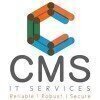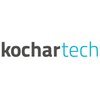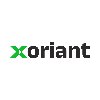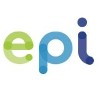
i
Emids Technologies
Limited
Filter interviews by
Emids Technologies Limited Architect Interview Questions and Answers
6 Interview questions
Handling load for a distributed system involves load balancing, scaling, caching, and monitoring.
Implement load balancing to evenly distribute incoming traffic across multiple servers.
Scale the system by adding more servers or resources to handle increased load.
Utilize caching to store frequently accessed data and reduce the load on the backend.
Monitor system performance and adjust resources as needed to maintain ...
Tools for continuous integration include Jenkins, Travis CI, CircleCI, GitLab CI/CD, and Bamboo.
Jenkins is a popular open-source tool for continuous integration and delivery
Travis CI is a cloud-based continuous integration platform
CircleCI is a cloud-based continuous integration and delivery platform
GitLab CI/CD is a built-in continuous integration and delivery tool in GitLab
Bamboo is a continuous integration and ...
OOPS concepts are the principles of Object-Oriented Programming that help in designing and implementing software systems.
Encapsulation - bundling of data and methods that operate on that data
Inheritance - ability of a class to inherit properties and methods from a parent class
Polymorphism - ability of objects to take on multiple forms or behaviors
Abstraction - hiding of complex implementation details and providing...
DevOps benefits include faster delivery, improved collaboration, increased efficiency, and better quality.
Faster time-to-market for software releases
Improved collaboration between development and operations teams
Increased efficiency through automation and continuous delivery
Better quality through continuous testing and monitoring
Reduced risk of errors and downtime
Improved customer satisfaction and loyalty
Cost savi...
Parameterize refers to the process of defining parameters or variables in a system or program.
Parameterizing allows for greater flexibility and customization in a system or program.
It can be used in various fields such as engineering, finance, and computer science.
For example, in a computer program, parameterizing can allow the user to input values for certain variables, making the program more adaptable to differ...
Abstraction is a fundamental concept in OOPS that allows hiding implementation details and focusing on essential features.
Abstraction is the process of identifying essential features and ignoring the rest.
It allows creating abstract classes and interfaces that can be implemented by concrete classes.
Abstraction helps in achieving encapsulation and modularity in software design.
Examples of abstraction include abstra...
Emids Technologies Limited Architect Interview Experiences
2 interviews found
(2 Questions)
- Q1. What is Solid principle
- Ans.
SOLID is a set of five design principles that help make software designs more understandable, flexible, and maintainable.
S - Single Responsibility Principle: A class should have only one reason to change.
O - Open/Closed Principle: Software entities should be open for extension but closed for modification.
L - Liskov Substitution Principle: Objects of a superclass should be replaceable with objects of its subclasses with...
- Q2. How to handle load for a distributed system
- Ans.
Handling load for a distributed system involves load balancing, scaling, caching, and monitoring.
Implement load balancing to evenly distribute incoming traffic across multiple servers.
Scale the system by adding more servers or resources to handle increased load.
Utilize caching to store frequently accessed data and reduce the load on the backend.
Monitor system performance and adjust resources as needed to maintain optim...
Interview Questionnaire
5 Questions
- Q1. What are OOPS concepts
- Ans.
OOPS concepts are the principles of Object-Oriented Programming that help in designing and implementing software systems.
Encapsulation - bundling of data and methods that operate on that data
Inheritance - ability of a class to inherit properties and methods from a parent class
Polymorphism - ability of objects to take on multiple forms or behaviors
Abstraction - hiding of complex implementation details and providing a si...
- Q2. What abstraction in OOPS
- Ans.
Abstraction is a fundamental concept in OOPS that allows hiding implementation details and focusing on essential features.
Abstraction is the process of identifying essential features and ignoring the rest.
It allows creating abstract classes and interfaces that can be implemented by concrete classes.
Abstraction helps in achieving encapsulation and modularity in software design.
Examples of abstraction include abstract cl...
- Q3. What is parameterize
- Ans.
Parameterize refers to the process of defining parameters or variables in a system or program.
Parameterizing allows for greater flexibility and customization in a system or program.
It can be used in various fields such as engineering, finance, and computer science.
For example, in a computer program, parameterizing can allow the user to input values for certain variables, making the program more adaptable to different s...
- Q4. What are benefits of Devops
- Ans.
DevOps benefits include faster delivery, improved collaboration, increased efficiency, and better quality.
Faster time-to-market for software releases
Improved collaboration between development and operations teams
Increased efficiency through automation and continuous delivery
Better quality through continuous testing and monitoring
Reduced risk of errors and downtime
Improved customer satisfaction and loyalty
Cost savings t...
- Q5. What are the tools used for continuous integration
- Ans.
Tools for continuous integration include Jenkins, Travis CI, CircleCI, GitLab CI/CD, and Bamboo.
Jenkins is a popular open-source tool for continuous integration and delivery
Travis CI is a cloud-based continuous integration platform
CircleCI is a cloud-based continuous integration and delivery platform
GitLab CI/CD is a built-in continuous integration and delivery tool in GitLab
Bamboo is a continuous integration and deplo...
Skills evaluated in this interview
Top trending discussions






Interview questions from similar companies

I appeared for an interview in Apr 2025, where I was asked the following questions.
- Q1. Have you encountered and resolved any performance issues in your past work?
- Ans.
I have successfully identified and resolved various performance issues in my previous projects, enhancing system efficiency.
Optimized database queries, reducing response time by 40% in a web application.
Implemented caching strategies that improved load times for frequently accessed data.
Refactored code to eliminate bottlenecks, resulting in a smoother user experience.
Conducted performance testing and monitoring, leadin...
- Q2. What are the best practices for securing microservices?
- Ans.
Securing microservices involves implementing best practices like authentication, encryption, and network security to protect data and services.
Implement strong authentication mechanisms (e.g., OAuth2, JWT) to ensure only authorized users can access services.
Use HTTPS for all communications to encrypt data in transit and prevent eavesdropping.
Employ API gateways to manage traffic, enforce security policies, and provide ...
- Q3. Can you design a system for searching and placing an order?
- Ans.
A system for searching products and placing orders efficiently with user-friendly interfaces and robust backend architecture.
User Interface: Design a clean UI for product search with filters (e.g., category, price range).
Search Functionality: Implement a search algorithm (e.g., Elasticsearch) for fast and relevant results.
Product Details: Each product should have a detailed page with images, descriptions, and reviews.
S...
- Q4. What HTTP status code should be returned if the product quantity in the database is negative?
- Ans.
A negative product quantity indicates a logical error, typically requiring a 400 Bad Request response.
HTTP 400 Bad Request: Indicates the server cannot process the request due to client error.
Example: If a user tries to purchase a product with a negative quantity, the server should respond with 400.
This status code informs the client that their request is invalid and needs correction.
- Q5. What is the process of designing an API that accepts requests in XML format and returns responses in JSON format?
- Ans.
Designing an API that processes XML requests and returns JSON responses involves several key steps and considerations.
Define API endpoints and methods (e.g., GET, POST).
Implement XML parsing to handle incoming requests.
Convert parsed XML data into a suitable internal data structure.
Process the request and generate the appropriate response.
Convert the response data into JSON format.
Set appropriate HTTP headers for conte...
- Q6. Which features of Java 17 have you utilized?
- Ans.
Java 17 introduced several features like sealed classes, pattern matching, and enhanced switch statements that improve code efficiency.
Sealed Classes: Allow control over which classes can extend them. Example: `sealed class Shape permits Circle, Square {}`.
Pattern Matching for instanceof: Simplifies type checks and casting. Example: `if (obj instanceof String s) { ... }`.
Enhanced Switch Statements: Supports multiple ca...
Interview Preparation Tips

I applied via Naukri.com and was interviewed in Mar 2024. There was 1 interview round.
(1 Question)
- Q1. How Google search engine work?
- Ans.
Google search engine works by crawling and indexing web pages, and then ranking them based on relevance and authority.
Google uses automated programs called spiders to crawl the web and discover new pages.
The information from these pages is then indexed and stored in Google's database.
When a user enters a search query, Google's algorithm determines the most relevant results based on factors like keywords, backlinks, and...
Interview Preparation Tips

I applied via Referral and was interviewed before Aug 2021. There was 1 interview round.
(1 Question)
- Q1. All the questions are from the resume
Interview Preparation Tips
I applied via Naukri.com and was interviewed before Feb 2021. There were 2 interview rounds.

(7 Questions)
- Q1. What are your salary expectations?
- Ans.
I expect a competitive salary that reflects my skills, experience, and the industry standards for an architect role.
Based on my research, the average salary for architects in this region is between $70,000 and $100,000.
I have over 5 years of experience in sustainable design, which adds value to my candidacy.
I am open to discussing a salary that aligns with the responsibilities of the role and the company's budget.
- Q2. What is your family background?
- Ans.
I come from a diverse family with a rich cultural heritage, emphasizing education and creativity.
My parents are both educators, instilling a love for learning in me from a young age.
I have a younger sister who is an aspiring artist, showcasing our family's creative side.
We celebrate various cultural festivals, reflecting our multicultural background.
Family gatherings often involve discussions about architecture and des...
- Q3. Share details of your previous job.
- Q4. Why are you looking for a change?
- Ans.
I'm seeking new challenges and opportunities for growth in my architectural career to enhance my skills and contribute to innovative projects.
Desire for professional growth: I want to expand my expertise in sustainable architecture, which is increasingly relevant in today's market.
Looking for a collaborative environment: My current role lacks teamwork, and I thrive in settings where ideas are shared and developed colle...
- Q5. Where do you see yourself in 5 years?
- Q6. What are your strengths and weaknesses?
- Q7. Tell me about yourself.
Interview Preparation Tips

Interview Questionnaire
5 Questions
- Q1. What are OOPS concepts
- Ans.
OOPS concepts are the principles of Object-Oriented Programming that help in designing and implementing software systems.
Encapsulation - bundling of data and methods that operate on that data
Inheritance - ability of a class to inherit properties and methods from a parent class
Polymorphism - ability of objects to take on multiple forms or behaviors
Abstraction - hiding of complex implementation details and providing a si...
- Q2. What abstraction in OOPS
- Ans.
Abstraction is a fundamental concept in OOPS that allows hiding implementation details and focusing on essential features.
Abstraction is the process of identifying essential features and ignoring the rest.
It allows creating abstract classes and interfaces that can be implemented by concrete classes.
Abstraction helps in achieving encapsulation and modularity in software design.
Examples of abstraction include abstract cl...
- Q3. What is parameterize
- Ans.
Parameterize refers to the process of defining parameters or variables in a system or program.
Parameterizing allows for greater flexibility and customization in a system or program.
It can be used in various fields such as engineering, finance, and computer science.
For example, in a computer program, parameterizing can allow the user to input values for certain variables, making the program more adaptable to different s...
- Q4. What are benefits of Devops
- Ans.
DevOps benefits include faster delivery, improved collaboration, increased efficiency, and better quality.
Faster time-to-market for software releases
Improved collaboration between development and operations teams
Increased efficiency through automation and continuous delivery
Better quality through continuous testing and monitoring
Reduced risk of errors and downtime
Improved customer satisfaction and loyalty
Cost savings t...
- Q5. What are the tools used for continuous integration
- Ans.
Tools for continuous integration include Jenkins, Travis CI, CircleCI, GitLab CI/CD, and Bamboo.
Jenkins is a popular open-source tool for continuous integration and delivery
Travis CI is a cloud-based continuous integration platform
CircleCI is a cloud-based continuous integration and delivery platform
GitLab CI/CD is a built-in continuous integration and delivery tool in GitLab
Bamboo is a continuous integration and deplo...
Skills evaluated in this interview
Interview Questionnaire
2 Questions
- Q1. WHAT DO YOU KNOW ABOUT THIS COMPANY? (LIKE VALUES AND MOTTO)
- Q2. WHAT YOU HOPE IN YOURSELF THAT WILL BENEFIT OUR TEAM?
- Ans.
I possess strong problem-solving skills, effective communication, and a collaborative mindset that will enhance team dynamics and project outcomes.
Problem-Solving Skills: I have a proven track record of identifying issues and developing innovative solutions, such as streamlining a project workflow that improved efficiency by 30%.
Effective Communication: I excel in conveying complex ideas clearly, which was crucial in a...
I applied via Walk-in and was interviewed before Sep 2020. There was 1 interview round.
Interview Questionnaire
2 Questions
- Q1. What window size is perfect for toilet
- Ans.
The perfect window size for a toilet depends on the size of the room and the desired amount of natural light and ventilation.
Consider the size of the room and the location of the toilet within the room
Take into account the desired amount of natural light and ventilation
Common window sizes for toilets are 24x24 inches or 24x36 inches
Larger windows may provide more natural light but may compromise privacy
Smaller windows ...
- Q2. 2ft x 2 ft or 2 ft by 1 n half feet
Interview Preparation Tips
I applied via Job Portal and was interviewed before Apr 2021. There were 2 interview rounds.
Design a g+1 building in a given site as per requirements.
(4 Questions)
- Q1. Howmuch experience do you have?
- Q2. What all softwares are you familiar with?
- Ans.
I am familiar with various softwares used in architecture such as AutoCAD, SketchUp, Revit, and 3ds Max.
AutoCAD
SketchUp
Revit
3ds Max
- Q3. What are your salary expectations?
- Q4. What are your salary expectations?
Interview Preparation Tips
Emids Technologies Limited Interview FAQs
Tell us how to improve this page.
Emids Technologies Limited Interviews By Designations
- Emids Technologies Limited Software Engineer Interview Questions
- Emids Technologies Limited Software Developer Interview Questions
- Emids Technologies Limited Senior Software Engineer Interview Questions
- Emids Technologies Limited Test Engineer Interview Questions
- Emids Technologies Limited Associate Software Engineer Interview Questions
- Emids Technologies Limited Technical Lead Interview Questions
- Emids Technologies Limited Analyst Interview Questions
- Emids Technologies Limited Architect Interview Questions
- Show more
Interview Questions for Popular Designations
Overall Interview Experience Rating
based on 1 interview experience
Interview Questions from Similar Companies
Emids Technologies Limited Architect Reviews and Ratings
based on 2 reviews
Rating in categories
|
Senior Software Engineer
776
salaries
| ₹12.8 L/yr - ₹23.4 L/yr |
|
Software Engineer
432
salaries
| ₹4.2 L/yr - ₹11 L/yr |
|
Senior Test Engineer
220
salaries
| ₹5.4 L/yr - ₹21.2 L/yr |
|
Test Engineer
189
salaries
| ₹2.7 L/yr - ₹11.5 L/yr |
|
Technical Lead
184
salaries
| ₹20.4 L/yr - ₹34.3 L/yr |

ITC Infotech

CMS IT Services

KocharTech

Xoriant
- Home >
- Interviews >
- Emids Technologies Limited Interview Questions














